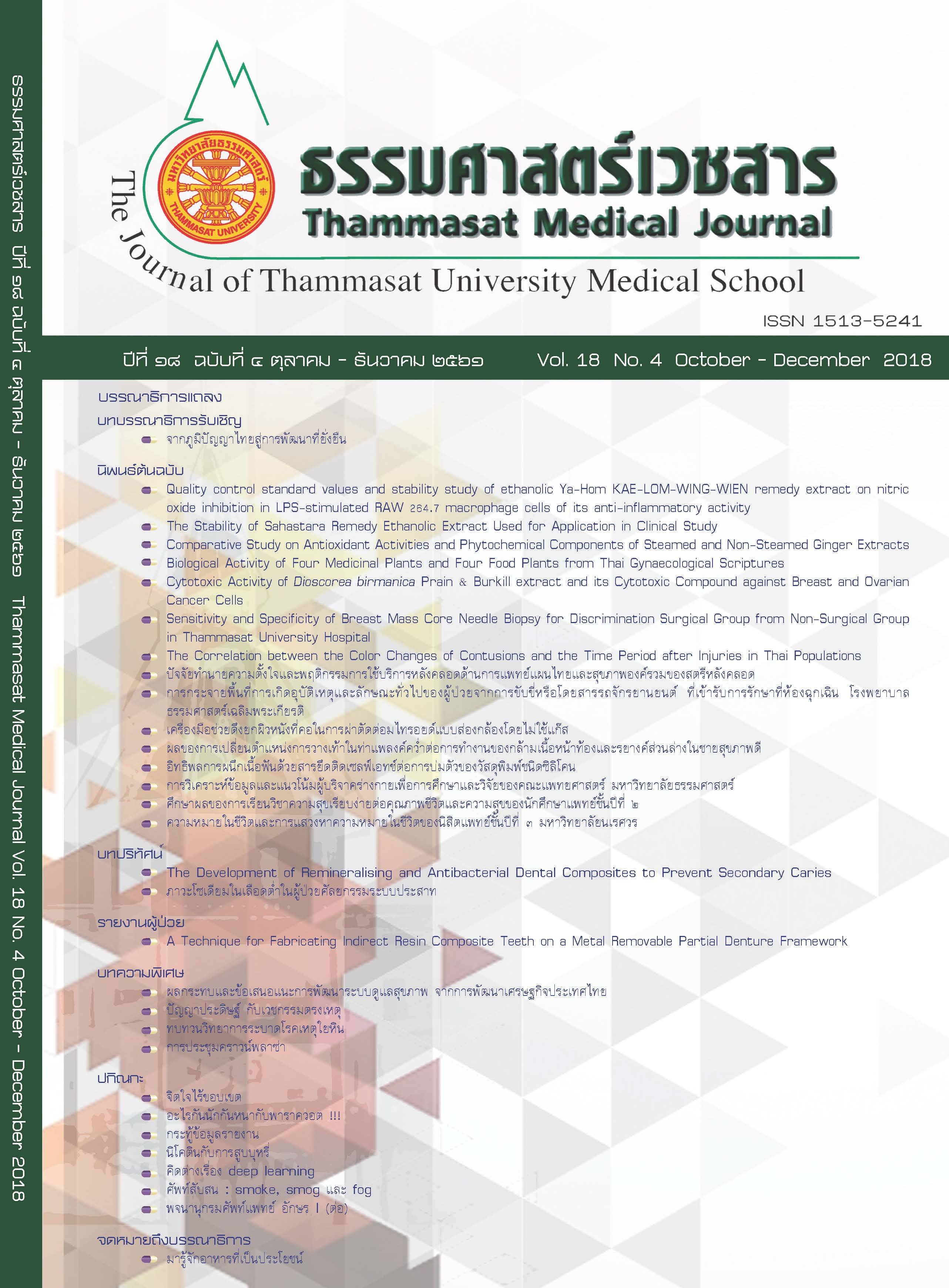Cytotoxic Activity of Dioscorea birmanica Prain & Burkill extract and its Cytotoxic Compound against Breast and Ovarian Cancer Cells
Keywords:
cytotoxic activity, Dioscorea birmanica Prain & Burkill, breast and ovarian cancer cells, keratinocyte cellsAbstract
Introduction: Breast and ovarian cancers in Thailand are becoming a significant health problem. Dioscorea birmanica Prain and Burkill (Dioscoreaceae) is one of the main medicinal herbs to cure the breast and ovarian cancers in Thailand.To investigate cytotoxic activity against breast and ovarian cancer cells of D. birmanica extract and to isolate its cytotoxic compound.
Method: The ethanolic extract of D. birmanica and its fractions were tested for its cytotoxic activity against two types of breast cancer cells (T47D and MCF-7), ovarian cancer cells (SKOV-3) and human keratinocyte cells (HaCaT) using sulforhodamine B assay and the criterion of the National Cancer Institute (NCI) guidelines for extracts with IC50 value˂30 µg/mL. Bioassay guided fractionation was used for isolating the cytotoxic compound. The structural elucidation of active ingredients was conducted by spectrophotometry.
Results: The results showed that diosgenin-3-O--L-rhamnosyl (12) --D-glucopyranoside or prosapogenin A of dioscin (DBS1) was isolated from the ethanolic extract of D. birmanica. It showed high cytotoxic activity against two types of breast cancer cells MCF-7andT47D (IC50 = 5.36 ± 0.26 and 6.13 ± 0.33 μg/mL, respectively.) and ovarian cancer cells SKOV-3 (IC50 = 7.30 ± 0.05 μg/mL, but not cytotoxic activity against human keratocyte cells, HaCaT, (IC50= 51.76±2.58 μg/mL).
Discussion and Conclusion: The cytotoxic compound, Prosapogenin A of dioscin (DBS1), showed high cytotoxic activity against ovarian and breast cancer cells; none against human keratocyte cells. These results can support further researches in molecular mechanisms and clinical trial to treat cancer patients, especially those with ovarian and breast cancers.



